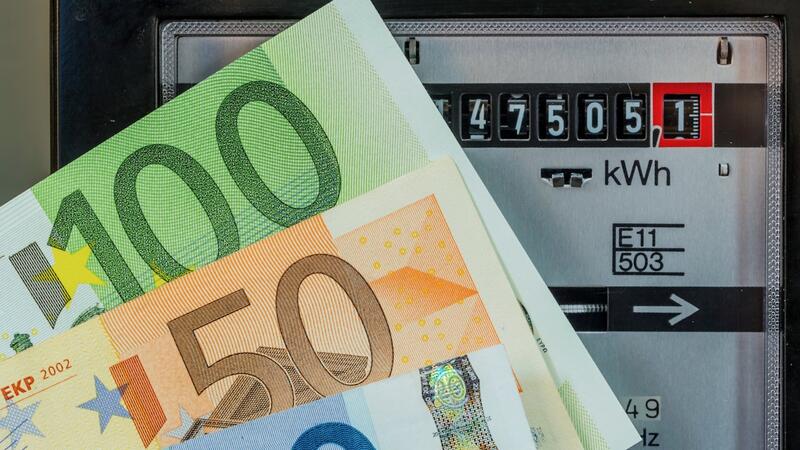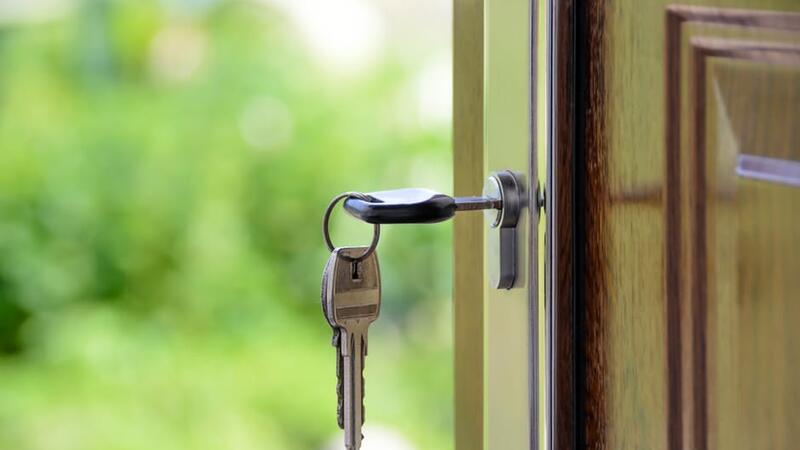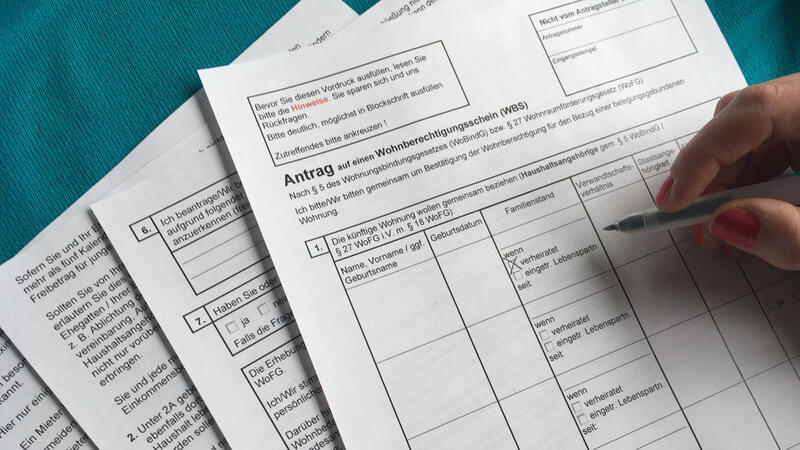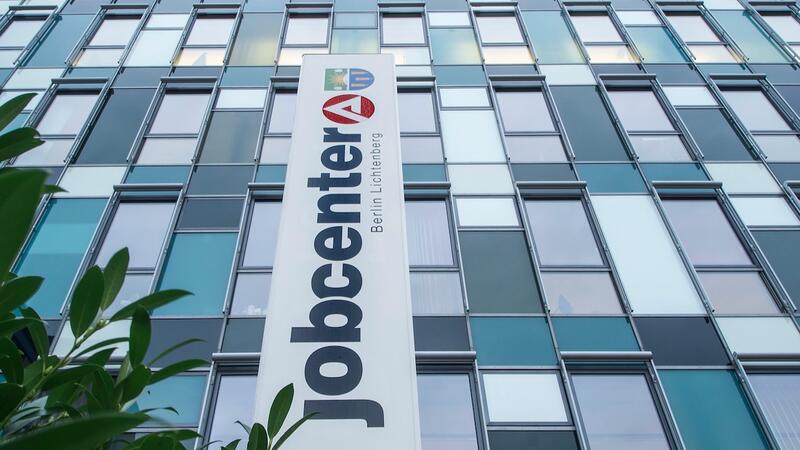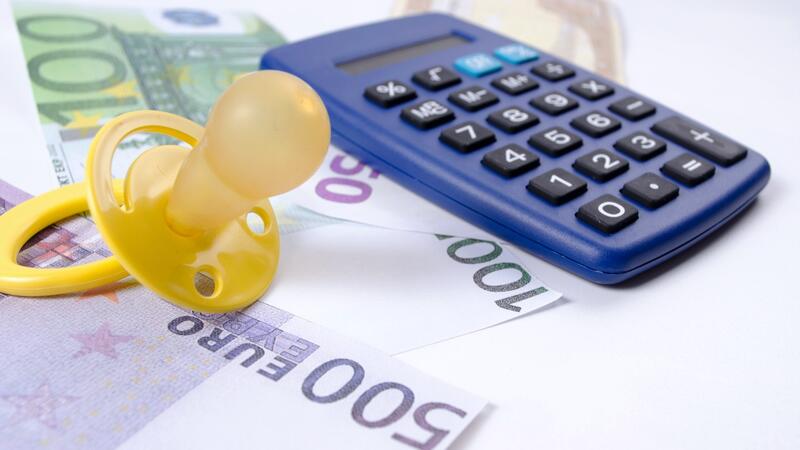State Aid for Cost of Living Crisis

What types of government support are available?
Due to rising prices, many currently struggle to pay their rent and electricity and heating bills. When shopping for groceries, things often get tight. Therefore, the state has designated various financial aids to lighten the burden to some extent. This chapter explains what types of support you can seek concerning electricity and heating bills, rent and children's expenses.
Please note: Here, we only list support offers you can get as of now – if the state decides on a new form of aid, we will add it to this chapter.
Electricity
Contact your electricity provider and ask them for a deferral or "Stundung" – a deferral means you can pay your debt later. You can ask for a deferral if your electricity company increases your monthly payment (because energy prices have risen) and you cannot pay the increased bill. Advance payment ("Abschlagszahlung") is the estimated amount you transfer monthly to your provider. Your provider usually calculates your actual consumption at the end of the year.
Please note: A deferral does not mean you are exempt from payment. You still have to repay the debts later. Otherwise, your provider can terminate your contract. You can learn more about unpaid electricity bills in our "Housing" chapter.
The Jobcenter or Social Welfare Office can take over what you owe to your electricity provider or utility bills from your landlord BUT only once and only in case you do not receive child allowance, housing benefit or BAföG.
For Jobcenter or Social Welfare Office to take over your debts, you must submit an informal application and request them to take over your energy-related debts. Important: You must do so in the month you must pay the amount. Keep in mind, only then will the office in question bear the costs. You can apply by email, but whether you need to send additional documents varies from authority to authority.
You can formulate the application like this:
Sehr geehrte Damen und Herren,
hiermit beantrage ich [Vorname] [Nachname], geboren am [Geburtsdatum] in [Geburtsstadt/Geburtsland], formlos und fristgerecht die Übernahme der Kosten, die mir durch die gestiegenen Energiepreise im Rahmen der Nebenkostenabrechnung für meine Mietwohnung entstanden sind.
Mit freundlichen Grüßen
[Your signature]
Different rules apply to the following groups:
- Pensioners can apply for the so-called “Sozialhilfe” at the Social Welfare Office. Be sure to submit your application in the same month you must pay. With the "Grundsicherung", you should be able to cover your rent, health and nursing care insurance, and everyday expenses (food and clothes). You can learn more in our chapter "Retiring in Germany".
- Students can apply for “Bürgergeld” (previously: unemployment benefit II or Hartz IV) – but only once. Be sure to submit your application in the same month you must pay. To meet the deadline, you can first submit an informal application (for unemployment benefit II) and fill out the application later. You can learn more in our "Jobcenter" chapter.
- Recipients of „Bürgergeld“ can ask the Jobcenter for an interest-free loan, which is considered to be a kind of advance. Your request will be reviewed by the Jobcenter. There must be an unavoidable necessity, an expense which you can no longer postpone because it could result in an emergency situation. For example, necessary repairs, missing winter clothing for growing children, or emergency situations due to a fire accident at home. Important: The Jobcenter will ask you to provide evidence. And they will deduct the borrowed amount from your „Bürgergeld“ in instalments until the loan has been repaid.
The federal government has decided on various aids so far. Here you will find an overview of the support available.
The electricity price brake
The electricity price brake is designated to ensures that you get a certain percentage of your annual electricity consumption at a lower price. It is valid from January 2023 until probably April 2024 (as of December 2022).
How much will my electricity cost with the electricity price brake?
Households and small businesses with an electricity consumption of less than 30,000 kWh per year pay 40 cents/kWh. However, this only applies to 80 percent of your total annual consumption. What you consume beyond this limit will be billed at the market price by your electricity provider.
Companies that consume more electricity than 30,000 kWh per year pay 13 cents/kWh, but only for 70 percent of their annual consumption.
Please note: The electricity price brake is designated to maintain the electricity prices of 2022. So we should expect higher electricity prices compared to 2021.
How high is my quota of subsidised electricity?
Your quota of subsidised electricity is calculated based on an estimate of your total annual consumption in 2023. The estimate is based on either your 2021 or 2022 consumption, depending on how your electricity is metered. Your electricity provider must therefore tell you by February 15, 2023 how high your quota of subsidised electricity is for 2023.
Important: The 80 or 70 per cent refers to your total annual consumption, not your monthly use. The specific amount can also vary from household to household.
How can I benefit?
You can get help from your electricity provider. If you pay your provider a monthly instalment or advance payment, your provider can adjust the bill to subsidised prices. Or he calculates the subsidised prices in your annual statement. If you pay for your electricity through your landlord, they will include the subsidy in your annual statement.
When do the subsidised prices apply?
Officially, the electricity price brake applies from March 2023, but in practice, the subsidised prices apply from January2023. That means the scheme will be extended retrospectively to include January and February 2023 too.
What happens if I change my electricity provider?
If you change your electricity supplier, you must provide your new supplier with a copy of your bill from your old electricity supplier. The amount of discounted electricity you have used so far should appear on the bill.
The energy price flat rate ("Energiepreispauschale ")
The energy price flat rate is a one-off payment of €300 gross from the state. Gross means a specific amount is deducted from the €300 before payment. Currently (as of November 2022), the following groups are entitled to the energy price flat rate:
- Self-employed and employees who live in Germany, have been working and paying taxes on their wages in 2022.
- Mini-jobbers
- Students doing a compulsory internship.
- Working students
- Seasonal workers
- Pensioners who live in Germany and have been receiving a pension since at least December 1, 2022
How to get the energy price flat rate:
- Employees received the lump sum in September 2022 with their wages. To benefit, you must have been working in the workplace and making social security contributions since September 1, 2022, at the latest. You can also receive the energy price flat rate via your income tax return if your employer does not pay it – the same applies to employees who started working after September 1, 2022.
- For the self-employed: The Tax Office will reduce your tax prepayment ("Steuervorauszahlung") for September 2022 by €300.
- Mini-jobbers received the lump sum in September 2022 with their wages. For you to receive it, your employer must declare that your mini-job is your primary job. You can also obtain the energy price flat rate via your income tax return if your employer does not pay it – the same applies to employees who started working after September 1, 2022.
- Students and seasonal workers receive the amount when submitting their income tax returns for 2022.
- Pensioners will probably receive the flat rate automatically in their accounts in December (as of November 2022). If you have yet to receive it, apply at the Deutschen Rentenversicherung Knappschaft-Bahn-See. You can do so from January 09, 2023, to June 30, 2023.
Important: For every income tax return received for 2022, the Tax Office automatically checks whether the person was entitled to the energy price flat rate. So, if you have not received it through your employer, submit a tax return for the year 2022.
Energy price flat rate for students and vocational students (“Fachschüler*innen”)
University and vocational school students receive a one-off energy fee aid of €200. You do not have to pay taxes on this state aid, and it is not counted towards other social benefits, such as BAföG.
In order to receive the lump sum, you must have been enrolled at a university or a vocational school by December 1, 2022. Application for the one-off aid offer has been possible since March 15, 2023. You can only apply online and to do so, you need to have a “Bund ID” account. “Bund ID” account (“BundID-Konto”) is a digital account by which you can verify your identity when making official online applications. If you have any questions about it, visit the website of “Bund ID” to find answers in German, English, Ukrainian and Russian.
There are two ways to prove your identity:
- via your electronic ID card or your electronic residence permit
- via the digital tax return file "ELSTER certificate".
After proving your identity, you can apply for this one-off aid on www.einmalzahlung200.de.
One-time payment for energy costs to recipients of social benefits
Recipients of „ Bürgergeld “ or social assistance (“Sozialhilfe”) entitled to such benefits in July 2022 would receive a one-off payment of €200. You should have received the money by September 2022 at the latest directly into your account and did not have to apply. If you have not received any money despite entitlement, contact your Jobcenter or Social Welfare Office.
One-off payment for energy costs to recipients of unemployment benefits I
Recipients of unemployment benefit I receive €100 if they were entitled to unemployment benefit I in July 2022. You should have received the money by September 2022 at the latest directly into your account and did not have to apply. Contact your Employment Agency if you have not received any money despite entitlement.
Heating
Your landlords will probably increase your rent if your rent includes heating, i.e. you pay "Warmmiete". Paying "Warmmiete" means you pay something for the heating every month, even though you mainly use it in winter. This payment is called advance payment or part payment ("Vorauszahlung" or "Abschlagszahlung"). You will often receive a bill for your total heating costs at the end or middle of the year. Your landlords will deduct all of your advance payments from your actual consumption. The difference is the amount you have to pay or (in case you save energy) get reimbursed.
If your landlords ask you for more money, in principle, it is because they are adjusting your advance payments to the new energy prices. This way, you would have to pay more monthly but won't have to pay a large lump sum on your next annual heating bill. However, your landlord must show you proof, such as a letter from the energy provider or a current bill to prove they have to pay more for the energy. They cannot increase the rent if they can't provide you with receipts. The general justification that prices have increased does not count as evidence.
Important: Even if your landlord is not adjusting your advance payments, try to put some money aside to ensure you have enough money for your heating bill, which is likely to be high. The annual energy bill can become quite expensive compared to the past years due to the rise in gas and oil prices. The "Heizspiegel" provides an overview of how expensive the costs could be for 2022.
The energy provider is the company from which you get your electricity or the energy for your heating, i.e., oil, gas or district heating.
If your provider is asking you for more money, they are likely increasing your advance payment. These are the payments that you transfer to your provider monthly. Often, at the end or in the middle of a year, you will receive a bill for your total consumption. Your provider will deduct all of your prepayments from the price of what you have actually consumed. The difference is the amount you have to pay or get reimbursed, depending on your amount of consumption.
Be sure to read the letter from your provider carefully. If you have trouble understanding it, seek help. Check out the section "Where can I find advice and support?" to find out where you can find support. Keep in mind that your provider may only ask you for more money if he observes the following:
- Your provider must inform you of the new prices before they apply. He must do so at least a month in advance.
- Your provider needs to inform you about the new prices and why they have increased comprehensibly and transparently.
- Your provider must adhere to the price adjustment clause in your contract or their general terms and conditions (Geschäftsbedingungen). The price adjustment clause specifies the cases in which the landlord may increase the prices.
- Your provider must inform you about your so-called "special right of termination" or "Sonderkündigungsrecht" which allows you to cancel your contract without observing the deadline specified in your contract.
Please note: Your provider may also ask whether you want to voluntarily increase your monthly advance payment. If you agree, your advance payments will increase. The landlord can only raise prices under certain conditions if you don't.
Deferral of advance payments
If your landlord increases your advance payment for heating costs, i.e. the amount you pay monthly for your heating, and you cannot pay the amount, talk to your landlord immediately. Ask whether you can pay the amount later. In German, this is called "Stundung" or deferring payments. Important: Even with a deferral, you still have to pay the entire amount.
If you pay your heating bills yourself (without state aid), ask your provider for a deferral immediately to see whether you can pay the amount later. Important: Even with a deferral, you still have to pay the full amount.
One-off assumption of debts by the Jobcenter or Social Welfare Office
If you cannot pay your heating bill, the Jobcenter or Social Welfare Office may take it over. For more information, see the section "Does the Jobcenter or Social Welfare Office support me with the rising expenses?".
Important: Act immediately when you can no longer pay the costs. If you are unsure what to do, contact a counselling centre or the Consumer Advice Centre. You can find the relevant addresses in the section "Where can I find advice and support?".
The federal government offers various forms of aid to dampen the rising costs of heating. Here, you will find an overview of the available programmes (as of January 2023).
The gas price brake
The gas price brake is designated to ensure you get a certain proportion of your annual gas, district or local heating consumption at a lower price. It is valid from January 2023 until probably April 2024 (as of January 2023).
How much will my heating cost with the gas price brake?
Households and smaller companies with a gas or heating consumption of less than 1.5 million kWh per year pay 12 cents/kWh. This also applies to you if you have already received the "December emergency aid 2022 for heating and gas". However, you only pay the lower price for 80 percent of your total annual consumption. Anything beyond that limit will be billed at the market price by your provider.
Companies that use more gas or heating than 1.5 million kWh per year pay 9 cents/kWh. However, the subsidy only applies to 70 percent of their annual consumption.
Please note: The gas price brake is intended to prevent very high gas prices in 2023. But keep in mind that the prices are still going to be higher compared to 2021.
How high is my quota of subsidised gas or heating?
Your quota of subsidised gas or heating is calculated based on an estimate of how high your annual consumption will be in 2023. The estimation is based on your September 2022 consumption.
Important: The 80 or 70 percent subsidised consumtion refer to your total annual consumption rather than your monthly use. The specific amount can also vary from household to household.
How can I benefit?
That depends on whether you pay your heating costs through your landlord or directly to your provider:
Landlords: Your landlords will apply the subsidised prices in your utility bill. You can also adjust your monthly advance or installment payment.
Provider company: If you pay your provider a monthly installment or advance payment, your the company can adjust it to match the subsidised rates. Or offset them in your annual statement.
When do the subsidised prices apply?
The gas price brake will officially apply from March 2023, but you will also benefit from subsidised prices retrospectively in January and February 2023.
What happens if I change my provider?
If you change your gas or heat supplier, you must provide your new supplier with a copy of your bill from your old gas supplier. The amount of discounted gas or heating you have used up to now should appear on the bill.
State subsidy for gas and heating expenses in December 2022
If you heat your space with natural gas or district heating (“Fernwärme”), the state will cover part of your costs for December 2022; to be more precise, your instalments or advance payments for this month (but only to a certain extent).
Here's how you benefit from the subsidy when paying advance payments to your landlords:
Tenants benefit from this subsidy via their landlords through the annual heating bill of 2022. Your landlord will deduct the advance payment for December 2022 from your bill.
Here's how you benefit from the subsidy when you pay the advance payment to your provider company independently:
- Gas customers: You do not have to pay your monthly advance payment this December. If you do so, you will be reimbursed the amount in your next annual statement. If you pay automatically by direct debit ("Lastschriftverfahren"), your provider will not collect the sum or transfer the amount back to you. They must do so before December 31, 2022.
- District heating customers: If you pay by direct debit ("Lastschriftverfahren"), your provider does not collect the sum or transfer the amount back to you. They must do so before December 31, 2022.
This is how the amount of the aid is calculated:
- For gas customers, the amount is calculated based on the gas price in December 2022 and one-twelfth of the sum of your estimated annual consumption for 2022. The calculation looks something like this: December 2022 gas price x 1/12 of the estimated annual consumption in 2022 = December aid amount
- District heating customers receive the amount of their advance payment for September 2022 plus 20 per cent of this amount. The calculation looks something like this:Advance payment September 2022 + 20% of advance payment 2022 = amount of December aid
Please note: Regardless of whether you use gas or district heating, the state does not pay for what you actually use, but only the advance payment ("Abschlagszahlung" or "Vorauszahlung"). You have to cover the rest of the expenses if you use more.
In addition, the following applies to tenants:
- Tenants whose advance payment has increased since February 2022 will pay the old price for heating in December 2022.
- Tenants who moved into a new flat in the last 9 months will only pay 75 per cent of their advance payment in December 2022.
Important: In both cases, inform your landlord that you will pay less for advance payment in December 2022.
Lower sales tax on gas
From October 1, 2022, to March 31, 2024, gas and district heating providers will have to pay lower taxes for gas and district heating to the state. The tax has decreased from 19 per cent to 7 per cent. Since the energy providers are supposed to pass these savings on to their customers, the energy prices, which are sharply rising, should reduce for the costumers somewhat. Please note: Even with a lower VAT, you still have to expect higher energy prices than in recent years.
"Heizkostenzuschuss" for recipients of housing benefit (“Wohngeld”)
As a recipient of housing benefits, you can receive the so-called "heating cost subsidy" or "Heizkostenzuschuss" from the state to cover your heating costs. There are currently (as of November 2022) two heating cost subsidies: heating cost subsidy I and heating cost subsidy II. Each of these subsidies are paid out only once. You do not have to apply and will automatically receive it in your account. You can learn more about the heating cost subsidy in our "Housing" chapter.
"Heizkostenzuschuss I"
If you received „Wohngeld” for at least one month between October 2021 and March 2022, you will be entitled to the " Heizkostenzuschuss I."
The amount of this subsidy depends on the number of people living together in a household as follows:
- 1 person: €270
- 2 persons: €350
- Each additional person: €70
Depending on the federal state where you live, you can expect the heating cost subsidy I in a different time (as of November 2022):
- June 2022: Rhineland-Palatinate
- July 2022: Bremen, Mecklenburg-Western Pomerania, North Rhine-Westphalia and Lower Saxony
- August 2022: Berlin, Schleswig-Holstein and Hesse
- September 2022: Hamburg, Saarland, Brandenburg and Saxony
- October 2022: Baden-Württemberg
- Not clear yet: Bavaria, Saxony-Anhalt and Thuringia
„Heizkostenzuschuss I“ will be followed by „Heizkostenzuschuss II“.
"Heizkostenzuschuss II"
You will receive the heating cost subsidy II if you have benefitted from housing benefits for at least one month between September and December 2022.
The amount of the "Heizkostenzuschuss II" depends on the number of people in a household:
- 1 person: €415
- 2 persons: €540
- Each additional person: €100
When you can receive the "Heizkostenzuschuss II" depends on the federal state where you live. Some federal states have already transferred the aid or started to do so (Bavaria, Berlin, Hesse, Mecklenburg-Western Pomerania, North Rhine-Westphalia, Rhineland-Palatinate), but in other federal states the "Heizkostenzuschuss II" is still to be transferred, for example in Saxony, in the first quarter of the year (as of February 2023).
Heating cost component for recipients of „Wohngeld”
Since January 1, 2023, a heating cost component has been added to the housing benefits. It is added automatically to your„Wohngeld“, so you do not need to apply for it separately. This money has nothing to do with the so-called „Heizkostenzuschuss“ as both „Heizkostenzuschuss I“ and „Heizkostenzuschuss II“ are time-limited. You can read more in the section " Subsidy for heating costs for recipients of housing benefits (“Wohngeld”)" above.
"Heizkostenzuschüss" for students
Students can also receive both heating cost subsidies (I & II) if they receive BAföG and no longer live with their parents. The heating cost subsidy I and II will be paid automatically, so you do not have to apply.
"Heizkostenzuschüss I"
You will be entitled to the heating cost subsidy I if you have received BAföG between October 2021 and March 2022 and no longer live with your parents. It amounts to a one-off payment of €230. Since the end of October 2022, the heating cost subsidy I has also been paid to trainees.
Requirements for "Heizkostenzuschüss II"
You will receive the heating subsidy II if you have received BAföG between September 2022 and December 2022 and no longer live with your parents. It amounts to a one-off payment of €345. The heating subsidy II is expected to be transferred to the students at the end of 2022 or the beginning of 2023.
"Heizkostenzuschüss" for trainees
Under certain circumstances, those going through vocational training can also receive the heating cost subsidy I and II. To be eligible, you must be entitled to the so-called "Aufstiegs-BAföG" with maintenance allowance ("Unterhaltszuschuss") or vocational training allowance ("Berufsausbildungsbeihilfe") or training allowance ("Ausbildungsgeld"). Then, the heating cost subsidy I and II will be paid to your account automatically, so you do not have to apply.
"Heizkostenzuschüss I"
You receive the heating cost subsidy I if you have received the so-called "Aufstiegs-BAföG" with maintenance allowance ("Unterhaltszuschuss") or vocational training allowance ("Berufsausbildungsbeihilfe") or training allowance ("Ausbildungsgeld") between October 2021 and March 2022. It amounts to a one-off payment of €230 and has been paid to trainees since the end of October 2022.
Requirements for "Heizkostenzuschüss II"
You would receive the heating subsidy II if you received the so-called "Aufstiegs-BAföG" with maintenance allowance ("Unterhaltszuschuss") or vocational training allowance ("Berufsausbildungsbeihilfe") or training allowance ("Ausbildungsgeld") between September 2022 and December 2022. It will amount to a one-time fee of €345 and is expected to be transferred to the trainees at the end of 2022 or the beginning of 2023.
Inspection of gas heaters
From October 1, 2022, homeowners must have the gas heating in their homes checked. They have 2 years to do so – and the examination must be carried out by professionals. The inspection aims to determine how well the gas heater is working. For example, the specialists might adjust outdated settings on the heating system. The owners must bear the costs for the inspection, but if deficiencies are found during the inspection, the owners do not have to fix them. It is currently (as of October 2022) unclear whether the landlords can pass on the costs to the tenants.
Rent
If you're having trouble paying your rent because of the increased prices, talk to your landlord as soon as possible and explain the situation to them. They may be able to arrange payment in instalments, i.e. you only pay part of your rent each month and the rest later when you have enough money.
Important: Be sure to talk to your landlord. If you do not pay rent for more than 2 months, your landlord can give you an eviction notice.
If you have any questions, contact a tenant association in your area. You may need to sign up for a paid membership to benefit from their counselling. You can find their offices' addresses on the German Tenants' Association website. Or you can contact the Tenants' Protection Association. You will find more information on their counselling service on the website of the Tenants' Protection Association e.V. Most of their employees only speak German. You can also contact a counselling – find the contact information in the "Where can I find advice and support?" section.
You can get help from the state if you are having trouble paying your rent. Currently (as of January 2023), these support options are available:
Housing benefit ("Wohngeld")
The housing benefit is a subsidy towards your rent. The money usually goes to people who cannot pay their rent due to low income. Therefore, people do not receive housing benefits when the state pays their rent. That's why the recipients of „Bürgergeld“), BAföG, the so-called “Sozialhilfe” or benefits for reduced earning capacity ("Erwerbsminderung") are not entitled to housing benefits.
With the new Housing benefits law, the so-called "Wohngeld Plus," many more can receive Housing benefits as of January 1, 2023. The new „Wohngeld” has doubled, on average from €180 per month to an average of €370. This is partly due to the fact that the income limit, up to which you can apply for Housing benefits, has been increased.
In addition, a portion of the housing benefits now automatically includes heating costs. This is called the heating cost component („Heizkostenkomponente“). You do not have to apply for it separately. This is also part of the reason why the „Wohngeld” as of January 2023 is significantly higher than before.
For some apartments, a "climate component" (“Klimakomponente”) is added as well. This is meant to help low-income people avoid the disadvantages of a climate-neutral conversion. This means that you will receive a little more money if your rent has increased due to a climate-neutral renovation. If that is the case, you receive 40 cents per square meter "climate component" added to the „Wohngeld“.
Currently (as of January 2023), these people are entitled to housing benefits:
- People who don't earn much money and have been paying their entire rent themselves.
- Pensioners
- Students who cannot receive BAföG and do not live with their parents
- Trainees who cannot receive vocational training allowance and do not live with their parents
- Recipients of unemployment benefit I
- Recipients of short-time work benefits
The amount of your housing benefits depends on the number of people who live with you, your salary and rent. You can use the the new housing benefit calculator set up (Wohngeldrechner) from the Federal Ministry for Building and Housing website to calculate the approximate amount. If you are unsure whether you can receive housing benefits, apply anyway. A refusal will not have any disadvantages for you.
You can apply for housing benefits at the responsible office in your place of residence – that is usually the so-called "Wohngeldstelle" where you can fill out an application for housing benefits. You can find the appropriate office in your area by searching online: Enter the words "Wohngeldstelle" and the name of your city/town in the search box. You can find the applications for each federal state on wohngeld.org. Submit your application as early as possible. Because it often takes several weeks before you receive money. You can learn more about housing benefits in our "Housing" chapter.
Please note: If you receive benefits under the Asylum Seekers Benefits Act, you can only receive housing benefits in exceptional cases.
Support for families
If you have children, you are entitled to various financial aids:
Child support ("Kindergeld")
Parents receive child benefits from the state as a subsidy for childcare expenses. The amount differs depending on how many children you have – currently (as of January 2023), you get €250 per month for one child. You can learn more about child benefits in our "Child benefit" chapter.
Child bonus ("Kinderbonus")
Due to rising energy prices, parents receive a one-time fee of €100 per child. The prerequisite is that you have received child benefits at least once in 2022. You do not need to fill out any extra application. The child bonus payment started in July 2022. By the end of 2022, all those entitled should have received the bonus. If you have not received it, contact the proper Family Benefits Office immediately. This is the office responsible for the payment of your child benefits.
The child bonus is not taken into account when calculating “Bürgergeld” (previously: Hartz IV) or social assistance (“Sozialhilfe”), housing benefits, child benefits and the advance maintenance payment. You will keep the total amount of €100 without any other benefits deductions.
Child supplement ("Kinderzuschlag")
The child supplement (KiZ) is given to parents who earn enough for themselves but whose income is not or is only just enough for the family. You can currently receive a maximum of €250 per month per child. The amount of your child allowance depends on your life situation. You can learn more about "Kinderzuschlag" in our "Child benefit" chapter.
Immediate child supplement ("Kindersofortzuschlag")
Since July 2022, recipients of social benefits have received an additional child allowance of €20 per child.
Your child will receive the immediate child supplement if they are entitled to:
- Benefits from the 2nd or 12th Social Security Code OR
- Benefits from the Asylum Seekers Benefits Act OR
- the child supplement ("Kinderzuschlag") OR
- the supplementary benefits for subsistence under the Federal Supply Act.
The authority from which you receive the benefit will pay you the immediate child supplement directly. So you do not have to submit any extra applications.
Education and Participation Package
With the education and participation package, you can get financial aid so that your child can participate in the following activities:
- Certain school and leisure activities
- Lunch service at school or after-school care if it is offered at your child's school
- Tutoring or membership in sports and music clubs
You must apply for the benefits. You can learn more about the education and participation package in our chapter "Educational Package".
BAföG
If you or your parents do not earn much, and you are not in Germany on a student visa, under certain circumstances, you can apply for state funding under the Federal Education Funding Act (BAföG). Then you can receive financial aid from the state as a student. You can learn more about BAföG in our "BAföG" chapter.
Where can I find advice and support?
Counselling centres can provide you more information and case-specific support. You can find one nearby on our Local Information page.
You can ask a Migration Counselling Centre (Migrationsberatungsstelle) or a Youth Migration Service (Jugendmigrationsdienst) in your area for support. The Youth Migration Service are specifically responsible for people under the age of 27. The staff in both counselling centres speak different languages, and their service is free. They can also help you fill out applications and forms.
If you cannot find a counselling centre nearby, you can visit our community platform, "Together in Germany" online. We will help you free of charge in many languages with information and addresses of counselling centres.
If you have questions about your electricity or heating bill, contact the Consumer Advice Centre. You can find an office nearby at verbraucherzentrale.de.
If you have issues with your landlord or questions about your rights as a tenant, you can seek advice from a tenant protection association or tenant association. These associations usually require you to become a member and pay an annual membership fee (approx. €50), but in return, you will receive comprehensive advice and legal assistance. On mieterbund.de, you will find a tenant protection association in your area.
Important
If your salary is barely enough to care for yourself and your family, you can apply to the Jobcenter for financial aid. You can learn more in our "Jobcenter" chapter.
